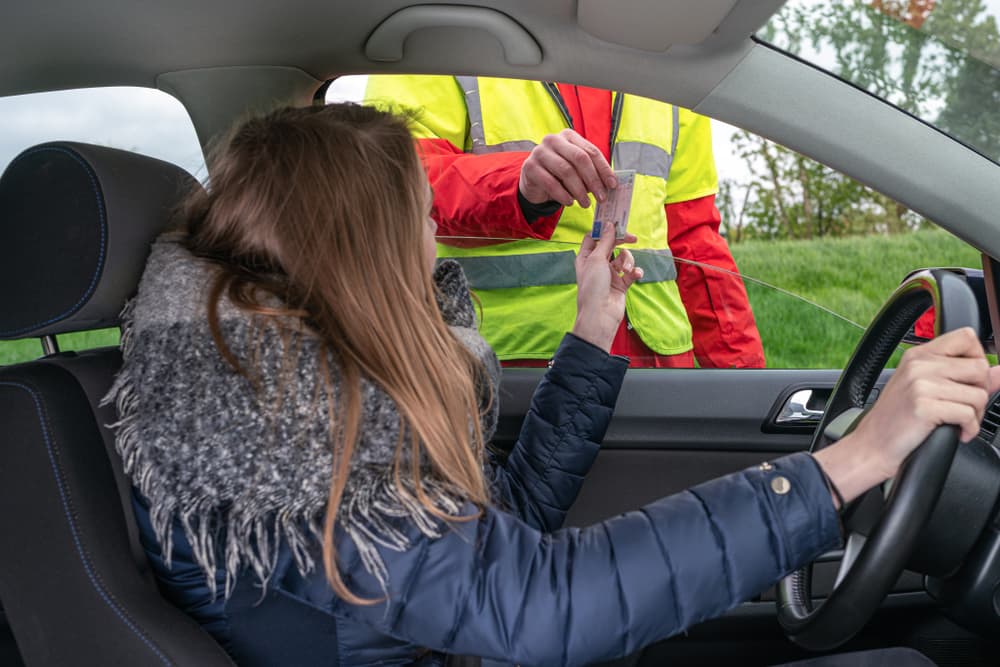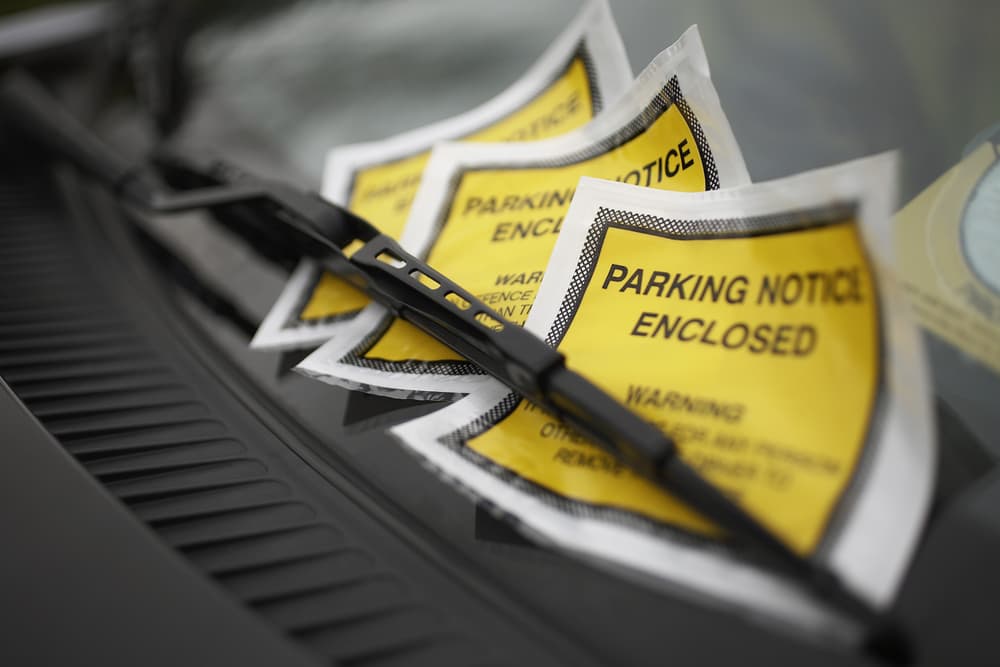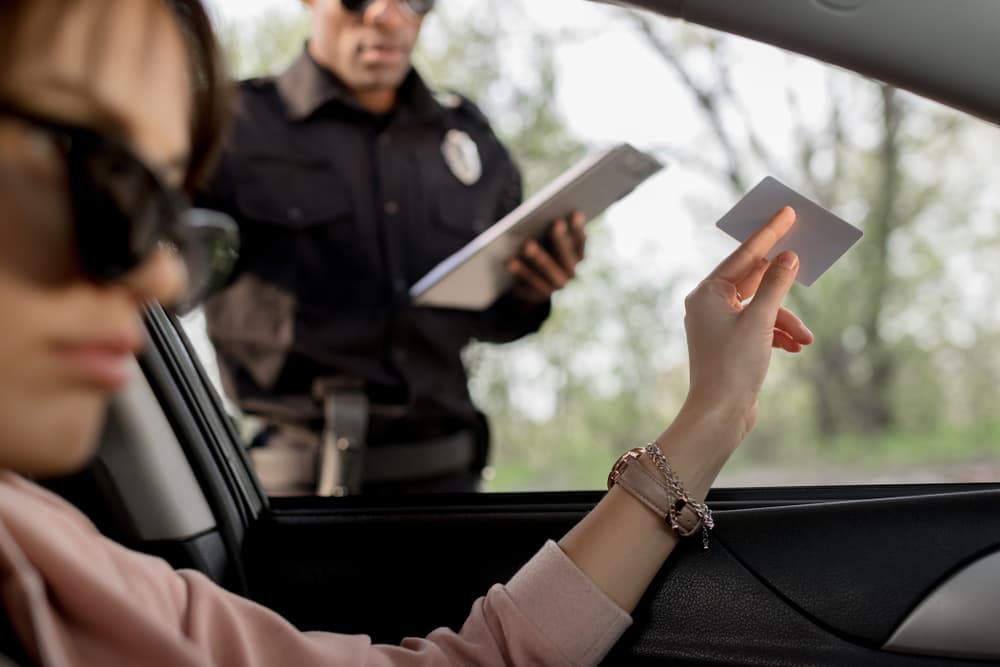
Common Offenses that Lead to a Suspended License in NJ
You can get your driver’s license suspended for several reasons in New Jersey. You may get your license suspended through the Motor Vehicle Commission (MVC) or the court. If this happens to you, you must contact legal counsel–such as a traffic ticket attorney or a DUI/DWI lawyer–to learn more about your rights and the suspension process.
Don’t try to handle the suspension alone, as an attorney can ensure you receive a better outcome so you can drive again.
Schedule a Free Initial Consultation Today!
Suspending a License for a Driving-Related Violation
Sometimes, the court or the MVC suspends a driver’s license when the driver violates a motor vehicle law. The MVC will send you a notice about your suspension. For example, the notice will state that your license has accumulated too many points from motor vehicle violations, leading to its suspension.
Collecting Points on Your License – What Can Lead to a Suspension
Points are counted for motor vehicle violations such as racing on the highway (five points), leaving the scene of an accident (two points), improperly passing a school bus (five points), improper u-turn (three points), or going 30 mph over the speed limit (five points). If you receive 12 points or more in three years, you’ll receive a notice of suspension from the MVC.
The notice also explains the process for avoiding a suspension. For instance, if you’ve collected too many points, you can attend a Driver Improvement Program to erase three points from your license and thus avoid a suspension.
If you believe the reason for the suspension is incorrect, you can request a hearing to contest it. You must make this request in writing. Again, requesting an attorney’s help ensures you receive better results. They can advocate for you, improving your chances of overturning the suspension.
If a driving-related violation suspends your license, consult a traffic ticket lawyer to determine the length of the suspension and the fines owed.
Receiving a License Suspension for Unpaid Parking Tickets

If you have two or more unpaid parking tickets, the municipal court in the jurisdiction where the tickets were issued may order a license suspension. To remove the suspension, you must either pay the fines for the ticket or appear in court and contest the tickets, hoping for their dismissal.
If you wish to contest your ticket, follow the instructions on the ticket or call the court issuing the ticket. Don’t ignore a ticket; a warrant will typically be issued for your arrest. If this happens, you must turn yourself in court before being given a court date to contest the ticket. Again, always talk to a traffic ticket attorney first, as ignoring a ticket can become a serious problem if you don’t have legal counsel.
It may benefit you to contest a ticket if paying for the ticket will increase your insurance premiums or the costs of operating your vehicle. If you pay for the ticket in full, you can do so in person at the court, online, or by mail. Once more, ask an attorney for help.
Maybe you can’t afford to pay for the ticket in full. If so, ask the court if you can arrange a payment plan. Don’t appear in person at the court unless you know a warrant has not been issued for your arrest.
Suspending a License for Failing to Pay an Insurance Surcharge
The MVC of New Jersey may impose a fine, called an insurance surcharge, for certain driver violations. Surcharges of this type are imposed annually for three years straight. Per previous legislation, if you fail to make these payments, the MVC may suspend your license, although it’s no longer a required suspension.
In some cases, if you have this outstanding debt and drive while suspended, you may face an additional fine and suspension. You can find out if you owe a surcharge by inserting your date of birth and driver’s license number in the boxes on the web page of New Jersey’s MVC Surcharge Department.
Removing a Surcharge-Related Suspension
You can remove a surcharge-related suspension if you:
- Pay the surcharge in full
- Pay a negotiated payoff amount*
- Agree to an installment plan
*The negotiated payoff amount does not require negotiation. Instead, the Surcharge Department merely issues a lump-sum payment that is less than the total due. You should schedule a payment plan if you can’t meet this payment. If the payment amounts are still not affordable, you can request a lower payoff.
It’s important to make some type of restitution, as agreeing to a plan, for instance, and making a down payment will remove the suspension. However, make sure you make your payments on time. If you miss a payment, the MVC will impose another suspension. You might consider speaking to a bankruptcy attorney if you can’t afford the payments.
Receiving a Suspension for Failing to Carry Insurance
If you’re pulled over and don’t have insurance, the court may order a license suspension and impose a fine. In this case, the suspension is discretionary. Moreover, the MVC can impose an additional suspension.
The MVC will remove the suspension after you provide proof of insurance and return the license plates and registration for the uninsured vehicle. It’s important to pay the applicable fines and wait for the suspension period to end before you restore your license.
If this is your first offense, the court may suspend your license for one year. A second offense can lead to a license suspension of up to two years. That’s why you can’t face a license suspension without getting legal advice and help. A skilled traffic ticket attorney can review all aspects of your case so you can drive sooner or experience better results.
Receiving a License Suspension for Committing a Crime

Some license suspensions are imposed as a punishment for committing a criminal offense – even if a motor vehicle was not involved. The length of the suspension can vary and depends on the statute related to your conviction. Your attorney can easily answer any questions along these lines.
The suspension begins when the court releases you from jail. The time frame for the suspension is discretionary in cases that involve the falsification of government documents or vehicle theft.
If the suspension isn’t mandatory, consult a criminal defense lawyer to explore options for reducing or removing it. After the suspension ends, the court lifts it, and you can drive again.
DUI/DWI License Suspension
Many driver’s license suspensions result from a DUI/DWI offense and conviction. The suspension length depends on the offense’s offense and the defendant’s defendant’ show concentration (BAC).
The suspension may last three months to one year for a first offense.
If you have a BAC of 0.15 percent or higher during a first offense, the court may suspend your license for four to six months and require you to use an interlock ignition device for nine to 15 months.
Perhaps you are charged with a second DUI/DWI offense. If so, you may face a suspension of two years.
A third offense can last ten years, or you may sometimes permanently lose your license. The court can extend a suspension if they believe it’s appropriate.
If you have a suspension due to a DUI or DWI and driving when caught, you’ll be sentenced to a fine of $500 and ten to 90 days imprisonment. You may also receive an additional suspension of one to two years. If you crash your vehicle while the court has revoked your license, and the other party is hurt, you are subject to a mandatory jail sentence of 45 to 180 days. The court will also revoke your motor vehicle registration.
In any of these cases, contact a DUI/DWI attorney immediately so they can review all aspects of your case and develop a strategy for your defense.
Current Rulings on License Suspensions in New Jersey

The court can no longer suspend a license for certain violations. These infractions include:
- Not showing up in court
- Not paying the court-ordered penalty
- Violations of state and federal drug laws
- Not complying with an order of an indigent payment plan
- Abandonment of a vehicle without consent
- Juvenile violations that involve defacing a property with graffiti or triggering a false alarm
Concerning driving-related violations, unpaid parking tickets, a failure to carry insurance, and committing a crime, the court considers:
- The nature of the crime or offense
- If the loss of driving privileges will lead to extreme hardship
- If there are alternative means of transport
Restoring Your Driving Privileges
To restore your driving privileges, you must satisfy the requirements of the MVC or what the court has imposed to remove the driving suspension and gain the privilege to drive again.
The court no longer suspends a license for certain violations. You can only drive after you receive a new driver and a notice from the MVC stating that you can resume driving.
Contact a Traffic Ticket Lawyer or DUI/DWI Lawyer Now
Whether you’ve had your license suspended for payment of traffic tickets or because of a DUI or DWI arrest, you need to speak to a New Jersey criminal defense attorney immediately. Talk to a legal professional about your case or someone who has handled similar cases. Make sure you receive fair and equitable treatment. Call an attorney today.
Schedule a Free Initial Consultation Today!
Lindsay Bernstein
Latest Posts
What Happens if You Get Caught for Shoplifting?
If someone accuses you of shoplifting, you may face serious legal consequences. The first and most obvious risk you face is the immediate threat to your...
Common Offenses That Lead to a Suspended License in New York
We frequently overlook or undervalue our ability to drive, regarding it as a right rather than a privilege. Though most of us know that there are fines and...
